A perspective from Travillian’s Indra Elangovan, Head of Strategic Advisory:
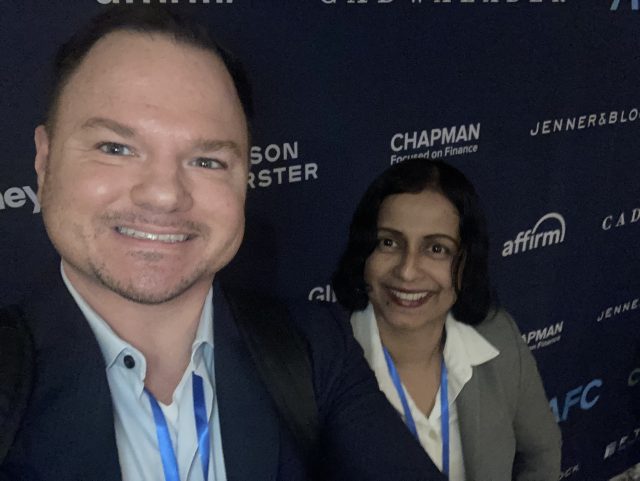
I recently participated in the AFC Policy Summit with my colleague Keith Daly, our in-house fintech guru. The event was a convergence of innovators, regulators, and policymakers dedicated to discussing best practices in the fintech industry. The conference was exceptionally well-attended, featuring a packed agenda that left no room for idleness.
Unlike typical conferences that can feel like echo chambers, this summit offered a diverse range of discussions and fireside chats, providing a comprehensive understanding of fintech policy issues. As Phil Goldfeder, CEO of AFC, emphasized, “When we initiated the AFC Policy Summit, we aimed to bring together not only those who agree with us but especially those who disagree, fostering relationships and collaborative ideas.”
In the face of an increasingly complex regulatory landscape, the summit facilitated engagement and networking with industry professionals and policymakers. Phil highlighted the distinctive approach of AFC as a trade organization, stating, “What makes AFC different is that we are not built to push back against regulation; it is quite the opposite. We are a trade organization actively engaging with regulators and consumer advocates to develop best practices.” The overarching goal for AFC and the summit is to find ways to foster innovation without stifling it while simultaneously ensuring the well-being of consumers.
The enthusiasm to embrace innovation from industry leaders and regulators filled the energy in the room. Without further due, here are my summarized takeways from the day.
Unified Brain Capital Promotes Innovation
The AFC Policy Summit provided a unique opportunity to gain insights from industry leaders, regulators, and policymakers. The event, filled with dynamic discussions across various panels, delved into crucial topics including Banking as a Service (BaaS), state regulatory initiatives, responsible innovation, third-party risk management, AI and regulatory modernization, Buy Now Pay Later, understanding novel activities and the implications for innovative banks and fintechs and embracing proactive regulatory relationships. The segment on “Understanding Novel Activities and Implications for Innovative Banks and Fintech” centered around comprehending the intricacies of financial nuances, offering valuable insights to both innovators and regulators.
Dynamic Keynote Fireside Conversation with Former FDIC Chairman Jelena McWilliams
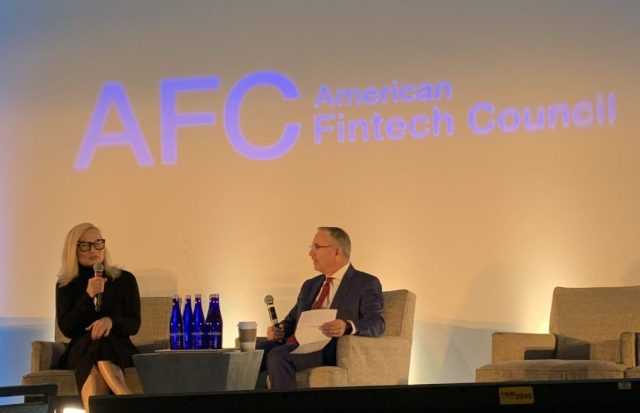
The summit’s first keynote featured a fireside chat with former FDIC Chairman Jelena McWilliams, who emphatically stated, “Banking as a Service is here to stay.” Despite industry challenges, she underscored the imperative of navigating compliance issues, with banks holding the ultimate responsibility. McWilliams emphasized that banks must be capable of explaining their operations to regulators, highlighting potential serious consequences for those unable to do so.
Peter Weinstock, Partner at Hunton Andrews Kurth, who engaged in the fireside chat with the former FDIC Chairman, concurred that BaaS is here to stay and emphasized that regulators are heightening expectations concerning compliance and risk. He pointed out that recent enforcement actions against BaaS banks have been focused on issues related to Bank Secrecy Act (BSA), Anti-Money Laundering (AML), and Know Your Customer (KYC) compliance.
Congressman Mike Flood (R-NE) Unveils the Digital Asset Landscape
Another engaging session was with Congressman Mike Flood, a member of the House Financial Services Committee and subcommittee on Digital Assets, Financial Technology, and Inclusion. He provided valuable insights into the policy issues affecting the Fintech sector. Congressman Flood, previously instrumental in advancing the Financial Innovation Act, which granted state-chartered banks the authority to custody cryptocurrencies, shared his views on the Financial Innovation and Technology for the 21st Century Act. According to Congressman Flood, this bipartisan legislation represents the most comprehensive crypto-related bill ever voted on by Congress. He acknowledged the likelihood of it passing the House but emphasized the need for concerted efforts to navigate the Senate. Congressman Flood challenged the SEC’s stance on requiring banks to include digital asset custodies on their balance sheets, citing the precedent set by BNY Mellon, which wasn’t mandated to report $17 trillion in traditional asset custodies. He argued for a similar approach for digital assets.
A Distinctive Fintech Frontier: A Bold Exploration of a New Niche
Shifting gears to a fireside chat on Earned Wage Access (EWA), a prominent fintech niche, Ram Palaniappan, CEO of EarnIn, shared intriguing insights. With two million users
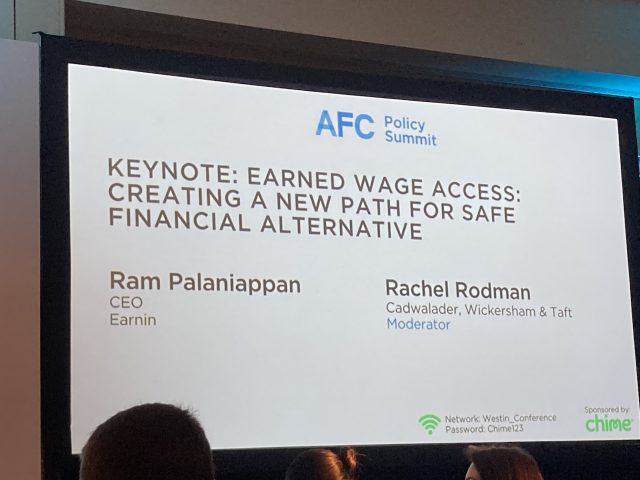
benefiting from EarnIn, the platform facilitates early access to wages, addressing crucial needs such as rent, gas, and groceries. Palaniappan highlighted those users experienced wage increases due to real-time wage tracking, enhancing their awareness. A noteworthy takeaway from the discussion was the prominence of EWA in fintech and the necessity for a national legislative framework. While some states have taken the lead in regulating EWA, there is a consensus that a unified system through national legislation is essential for consumers.
The Future Trajectory of FedNow
Mark Gould, Chief Payments Executive for Federal Reserve Financial Services, provided an overview of the progress on FedNow, highlighting the platform’s growth from an initial 30 banks at launch to over 200 banks presently engaged. The FedNow team adopts a startup mindset, prioritizing scalability as its primary goal. They are proactively seeking user feedback on the platform to inform the incorporation of additional features, showcasing a dynamic and adaptive approach to development.
All Eyes on CFBP Director Rohit Chopra’s Closing Remarks on Open Banking Regulations and AI
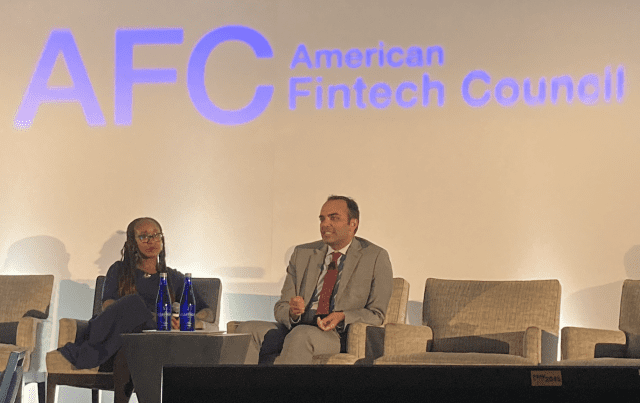
During the concluding keynote address, CFPB Director Rohit Chopra delved into pivotal aspects of open banking and AI modernization. He eloquently outlined his vision, emphasizing the paramount goals of ensuring fairness, transparency, and competitiveness within our financial system. Peter Weinstock highlighted Chopra’s commentary on the proposed open banking regulation, underscoring a crucial point not explicitly stated—that both fintech companies and traditional banks would bear the cost of enabling customers to leverage open banking, with the proposal explicitly prohibiting any charges to customers.
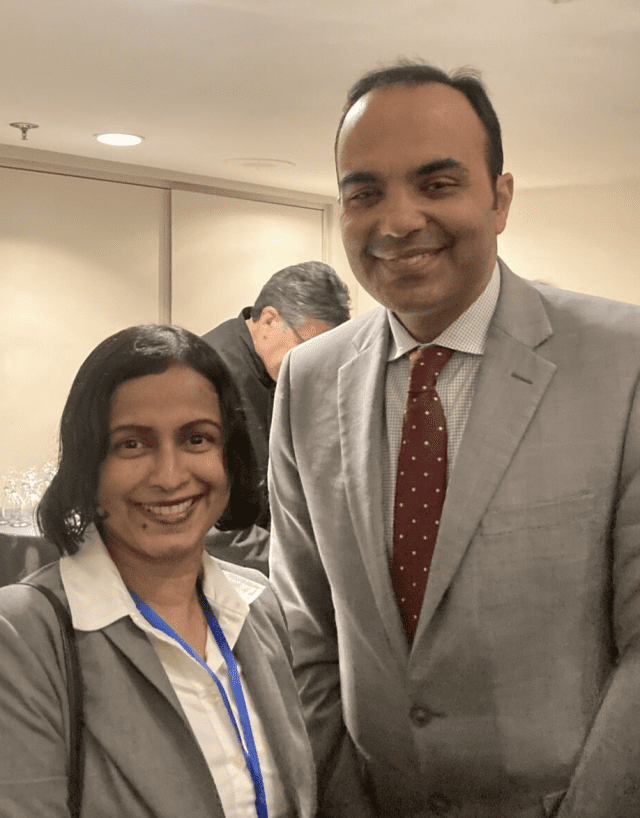
Chopra stressed the imperative that innovation should instigate substantive change rather than exploit regulatory loopholes. To foster the acceleration and success of open banking in the United States, he contended that companies must adopt a transparent approach to data and deliver tangible value. He underscored the inadequacy of offering loans merely as a pretext for data gathering. Chopra advocated for sensible standards governing open banking data, cautioning against overly complex regulations that may not withstand the test of time. He warned of the potential detriment to open banking if a single dominant player held excessive power, advocating instead for a competitive market. In an expansive question-and-answer session, Chopra addressed the deployment pace of chatbots, urging caution to prevent hasty implementations. He highlighted the importance of explaining adverse action notices resulting from AI underwriting and expressed a commitment to eliminating bias in home appraisals. Phil Goldfeder, in summarizing the post-keynote discussion, noted that Chopra spent approximately 45 minutes addressing various issues reiterating the AFC’s mission of constructing “a collaborative ecosystem, involving all stakeholders to establish and uphold best practices”.
Let’s Connect!
Congratulations to the organizers of the The AFC Policy Summit. It was truly one of the most interesting, useful , information packed one-day conference that I’ve attended in my career. Please don’t hesitate to reach out if you’d like to further discuss any of the topics covered above or simply explore how our synergies can lead to future collaborations.
Travillian’s Banking and FinTech Practice provides Search and Talent Advisory services to depository institutions across the country. Established in 1998, the firm has built a unique platform that touches every corner of the industry. To learn more, click here, or get in touch below!
|
Indra Elangovan, Head of Strategic Advisory
(443) 844-2798 | ielangovan@travillaingroup.com |






